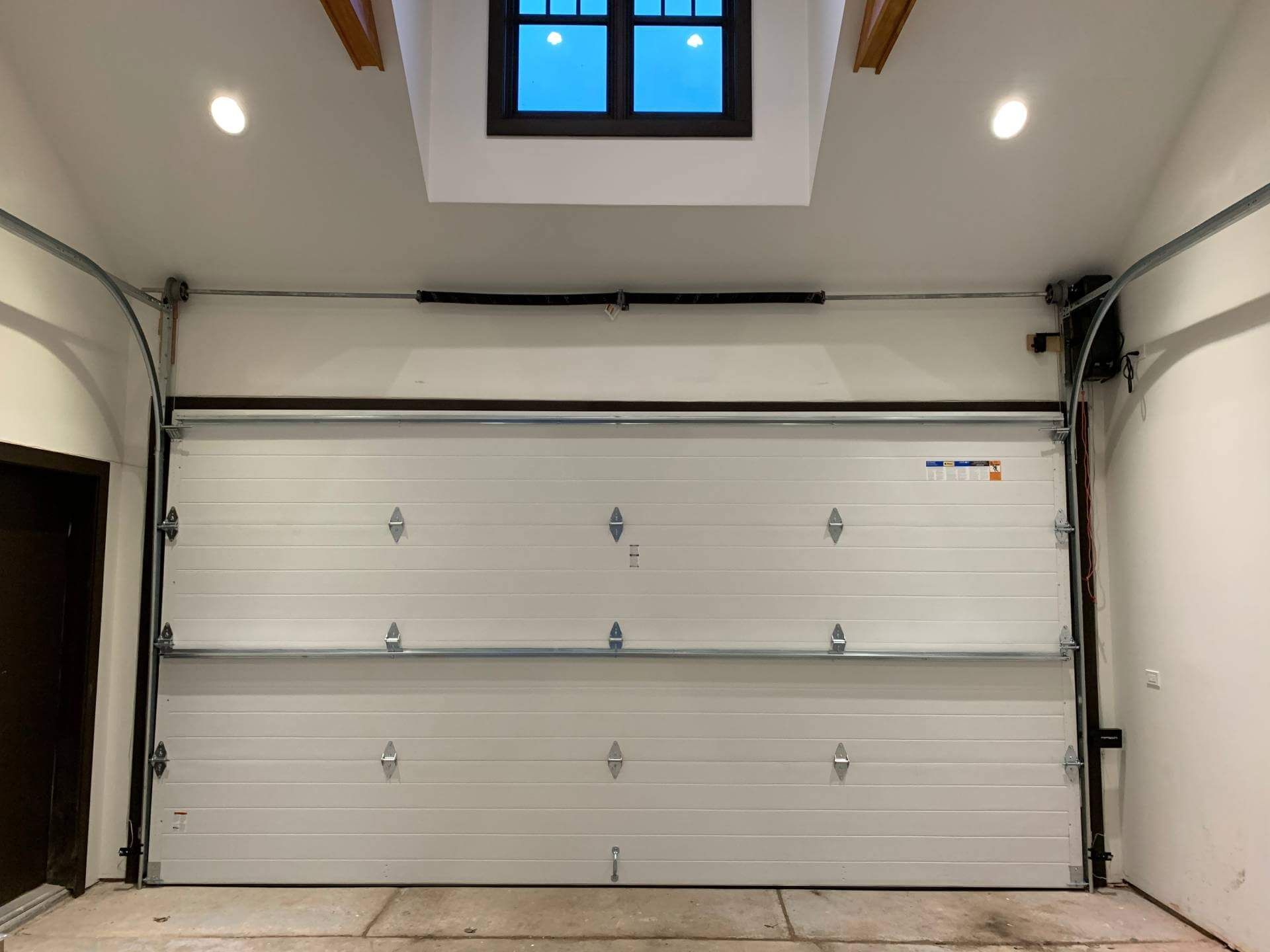Insulated vs. Non-Insulated Garage Doors: What You Need to Know
Have a question or are you in need of service? Reach out online or give us a call!

Posted by Four Seasons on October 24, 2025
When choosing a new garage door for your home, one of the most important decisions you’ll make is whether to go with an insulated or non-insulated garage door. At first glance, the difference might seem small, but the right choice can significantly impact your home’s comfort, energy efficiency, noise levels, and durability.
At Four Seasons Garage Doors, we’ve helped countless Chicagoland homeowners find the perfect balance between performance and budget. Here’s what you need to know before making your decision.
What Is an Insulated Garage Door?
An insulated garage door is built with one or more layers of insulation material—usually polyurethane or polystyrene—sandwiched between steel or aluminum panels. This extra layer helps regulate temperature, reduce noise, and strengthen the door’s structure.
Insulated doors come in different construction styles:
- Single-layer: Basic insulation for mild climates.
- Double-layer: Steel exterior with insulation inside for improved comfort.
- Triple-layer: The most durable and energy-efficient option, ideal for Chicago’s extreme temperatures.
These doors are designed to maintain more stable indoor temperatures, even when outdoor conditions fluctuate dramatically.
What Is a Non-Insulated Garage Door?
A non-insulated garage door, sometimes called a “pan door,” is made of a single layer of metal without any internal insulation. These are typically found on detached garages, sheds, or properties where temperature control isn’t a major concern.
Non-insulated doors are lighter and often less expensive, making them appealing for budget-conscious homeowners or low-use spaces. However, they don’t offer much in the way of temperature regulation, soundproofing, or structural strength.
The Benefits of Insulated Garage Doors
In Chicago’s climate, where freezing winters and hot, humid summers are the norm, an insulated garage door can make a big difference in both comfort and efficiency.
1. Energy Efficiency and Cost Savings
Garages often share walls with living areas. Without insulation, heat and cold can transfer through the door, forcing your HVAC system to work harder. An insulated garage door acts as a thermal barrier, helping to stabilize temperatures and reduce energy bills throughout the year.
2. Better Temperature Control
Even if your garage isn’t heated, an insulated door keeps it noticeably warmer in winter and cooler in summer. That’s especially beneficial if you use your garage for hobbies, laundry, or storage of temperature-sensitive items.
3. Noise Reduction
Insulated garage doors absorb sound, both from outside traffic and from the door’s operation itself. If your garage is attached to your home, that means less noise entering living spaces and a quieter, smoother door movement overall.
4. Durability and Longevity
The layered construction of an insulated door adds rigidity, which helps it resist dents, warping, and vibration. This makes it ideal for homeowners who want a long-lasting, low-maintenance garage door solution.
5. Increased Home Value
Insulated doors are considered a premium upgrade, which can boost your home’s curb appeal and resale value. They also come in a wide range of styles and finishes, allowing you to customize both aesthetics and performance.
When a Non-Insulated Garage Door Might Be Enough
While insulated garage doors offer clear advantages, non-insulated options still have their place.
If your garage is detached from your home or primarily used for storage, workshops, or vehicle parking, insulation might not be a necessity. Non-insulated models are also lighter, which can reduce strain on openers and hardware.
They’re typically less expensive to purchase and install, so for homeowners prioritizing affordability or simplicity, a non-insulated door can be a practical choice.
How to Decide Which Type Is Right for You
When comparing insulated vs. non-insulated garage doors, consider these key factors:
- Climate: In cold or hot regions like Chicago, insulation is almost always worth the investment.
- Garage Use: Do you spend time in your garage, or is it purely for parking?
- Garage Location: Attached garages benefit the most from insulation.
- Budget: Non-insulated doors are more affordable upfront, but insulated ones can save money over time through lower energy use.
- Noise Concerns: If you value a quieter operation, insulated doors outperform non-insulated models.
If you’re unsure which option fits your needs, the professionals at Four Seasons Garage Doors can help you evaluate your space, usage habits, and local climate to recommend the best solution.
The Four Seasons Garage Doors Difference
Choosing the right door is just the beginning. Proper installation ensures your investment performs as expected. Our experienced technicians provide expert garage door installation and maintenance across Chicagoland, using premium materials and industry-leading techniques to deliver lasting results.
We offer a full range of insulated and non-insulated garage doors, available in various designs, finishes, and materials, from modern steel to classic carriage-house styles. Our team handles everything from consultation to installation, ensuring a seamless process from start to finish.
Upgrade Your Garage Door with Chicago’s Trusted Experts
Whether you’re upgrading for energy efficiency, noise reduction, or visual appeal, Four Seasons Garage Doors has you covered. We’ll help you choose between insulated and non-insulated garage doors that fit your home, lifestyle, and budget.
Call (630) 425-4588 today or visit our website to schedule your consultation and discover why Chicagoland homeowners trust Four Seasons Garage Doors for reliable service and exceptional quality.
Request Service
Contact Form
"*" indicates required fields